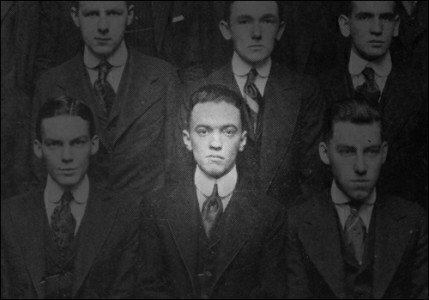On May 2, 1972, FBI director J. Edgar Hoover died of heart disease at a Washington hospital, ending his 48-year period of total control over the federal agency he created and managed. Hoover, a power unto himself, actually started his professional career as a librarian and used those skills to shape the FBI.

Hoover has been the subject of numerous writings and media coverage about his controversial career, and a recent Clint Eastwood movie labeled Hoover as the “most powerful man” in the world during his service in America.
That could be a stretch, but Hoover is certainly among the most powerful government officials in American history. He served eight Presidents as FBI director beginning in 1935. Hoover also headed the bureau’s predecessor agency, the Bureau of Investigation, starting in 1924 at the request of President Calvin Coolidge. As a young Justice Department official, Hoover played a role in investigating the Red Scare in its early days during Woodrow Wilson’s administration.
But Hoover’s life of service began with his first position as a young worker at the Library of Congress. He was born in Washington, D.C., and was valedictorian of his high school class.
Hoover attended George Washington University, starting as a law student in 1913. At the same time, Hoover took an entry-level job as a messenger at the Library of Congress.
While Hoover eventually earned the equivalent of a master’s degree of law over the next four years, he rose quickly at his day job at the Library of Congress.
“Hoover excelled at his work. He impressed his supervisors and was awarded multiple raises. His position in the orders department—which acquired books, manuscripts, and other items for the Library’s collections—included the opportunity to work in the cataloging department and the loan division,” said the FBI in an online retrospective.
The FBI also refuted rumors that Hoover’s legendary filing system at the bureau was based on a system used at the Library of Congress, calling the two systems “vaguely similar.”
In the wake of the Eastwood movie, a Library of Congress manuscripts specialist went through the Library’s records to see what Hoover did during his four years of work there.
Hoover’s appointment as an 18-year-old was mentioned in congressional testimony about the backgrounds, salaries and positions of Library employees. There wasn’t any evidence that the young Hoover was involved in developing the Library’s cataloging system, but he certainly was aware of how it worked.
“While Hoover would not have played a role in developing the Library’s card catalog in the jobs he held, it is quite possible he would have seen and become familiar with it,” said the LOC employee.
Hoover’s career ended at the Library of Congress when he passed the bar exam on July 25, 1917. Hoover took a job as a Justice Department clerk the next day.
Hoover’s career advanced at a faster pace at the Justice Department. Within two years he rose from being a clerk with a law degree to a position as head of the Bureau of Investigation's General Intelligence Division.
The Division was responsible for carrying out the Palmer Raids in 1919 and 1920, a series of actions taken against radicals after a bomb damaged the home of Attorney General Mitchell Palmer.
By 1924, Hoover was the official head of the Bureau of Investigation.
In later years, Hoover spoke about how important his library training was in his professional career. He wrote in 1951, that his library job had “trained me in the value of collating material. It gave me an excellent foundation for my work in the FBI where it has been necessary to collate information and evidence.”
One of Hoover’s innovations at the FBI was the addition of extensive cross-referencing, or what today we would call “metadata,” to the Bureau’s filing system.
“In a profession that requires intelligence at its fingertips and the ability to know everything that’s available, this system was crucial to the success of Hoover’s Bureau as it grew and adapted to its expanding mission,” the FBI said in its online retrospective on Hoover.







